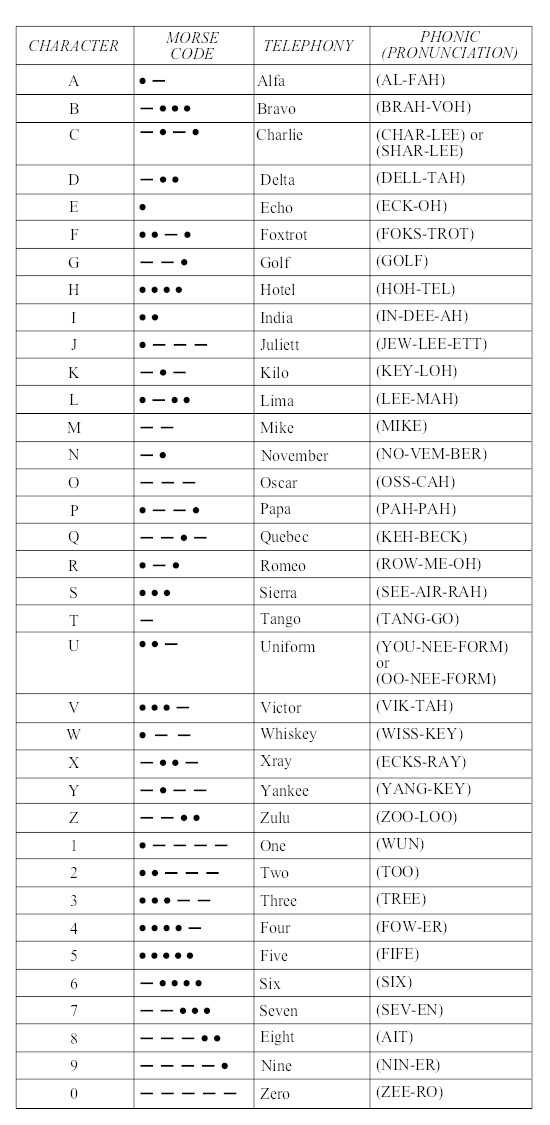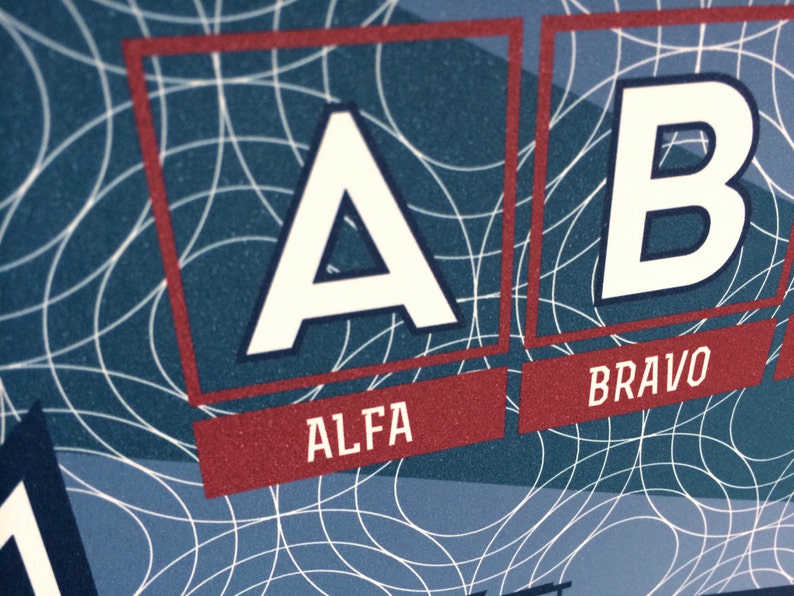

Dissatisfaction with the existing internationally recognized phonetic alphabet submitted to ICAO for consideration led to the first draft of a proposed single universal alphabet. ICAO adopted its phonetic alphabet 70 years ago, on 1 November 1951, as a universal standard for communicating English letters over a phone or radio. Over the radio, this would be said as “Mike, tree, four, fife, November.” Consider an aircraft tail number such as M345N. Those include the number three, pronounced as tree (tri), five as fife and nine as niner. Therefore, a few of them are pronounced differently from their standard English pronunciation. Similar to the letters, the aim is to avoid confusion with other similar numbers. Not only are the letters in the ICAO phonetic alphabet assigned, but so are the numbers. The phonetic alphabet helps limit confusion between the cockpit and the tower. Because some letters sound similar (M and N or G and J), it can generate confusion between two people communicating with different accents or when the communication lines are poor. With short and simple words, ICAO’s phonetic alphabet lowers the chance of misunderstandings and increases operational safety for passengers and crew.
THE INTERNATIONAL RADIOTELEPHONY SPELLING ALPHABET CODE
The ICAO phonetic alphabet has assigned the 26 code words to the 26 letters of the English alphabet in alphabetical order: Alfa, Bravo, Charlie, Delta, Echo, Foxtrot, Golf, Hotel, India, Juliett, Kilo, Lima, Mike, November, Oscar, Papa, Quebec, Romeo, Sierra, Tango, Uniform, Victor, Whiskey, X-ray, Yankee, Zulu. Members of the military, police, airline pilots and others working in the aviation and travel industry commonly use it.

Also referred to as the ICAO Phonetic Alphabet and the NATO Alphabet (with some modifications), this universal spelling alphabet is a set of words used to clarify messages, no matter the spoken language.

ICAO developed the International Radiotelephony Spelling Alphabet to ease communication via telephone or radio and avoid misunderstandings when parts of a message containing letters and numbers are spelled out. The ICAO and FAA use the standard number words of English with four altered pronunciations, whereas the ITU and IMO use ten code words for numbers.When a pilot communicates with air traffic control, static and other interferences often lead to confusion with English language letters. The code word Quebec is pronounced as French "keh-beck". Papa is pronounced "Pa-PAH" with the accent on the second syllable instead of the first. Oscar is pronounced "oss-cah" and Victor as "vik-tah" without the 'r', even by people who would normally pronounce it. Some of the 26 words have altered pronunciations: Charlie can be either "char-lee" or "shar-lee", and Uniform is either "you-nee-form" or "oo-nee-form", neither of which is the English pronunciation of the word. The 26 code words in the NATO phonetic alphabet are assigned to the 26 letters of the English alphabet in alphabetical order as follows: Alfa, Bravo, Charlie, Delta, Echo, Foxtrot, Golf, Hotel, India, Juliett, Kilo, Lima, Mike, November, Oscar, Papa, Quebec, Romeo, Sierra, Tango, Uniform, Victor, Whiskey, X-ray, Yankee, Zulu. Instead, the International Civil Aviation Organization alphabet assigned code words acrophonically to the letters of the English alphabet so that critical combinations of letters and numbers can be pronounced and understood by those who transmit and receive voice messages by radio or telephone regardless of their native language or the presence of transmission static.

Although often called "phonetic alphabets", spelling alphabets do not have any association with phonetic transcription systems, such as the International Phonetic Alphabet. The NATO phonetic alphabet, more accurately known as the International Radiotelephony Spelling Alphabet and also called the ICAO phonetic or ICAO spelling alphabet, as well as the ITU phonetic alphabet, is the most widely used spelling alphabet. Freebase (0.00 / 0 votes) Rate this definition:


 0 kommentar(er)
0 kommentar(er)
